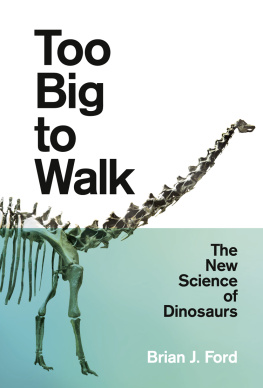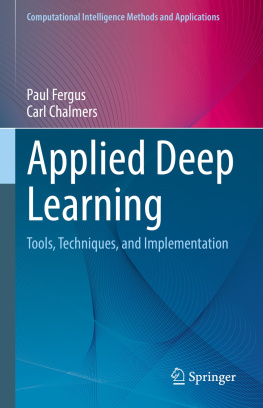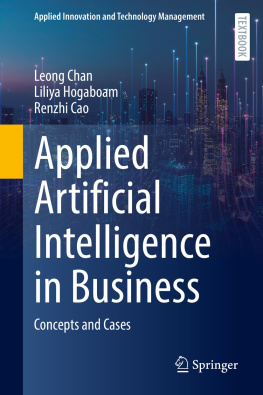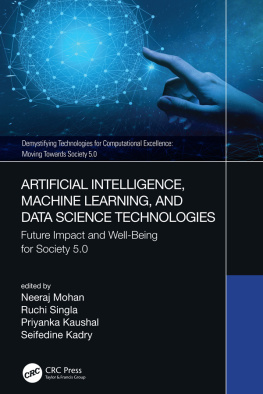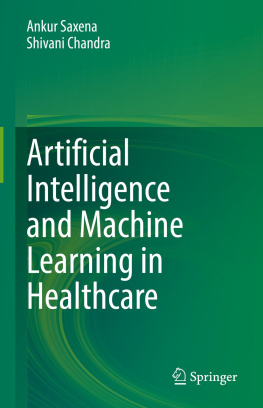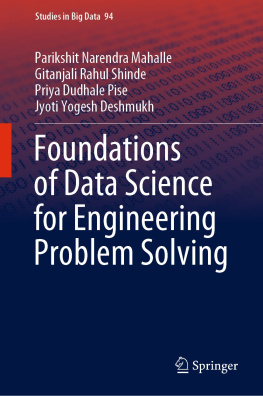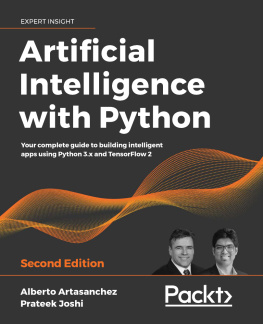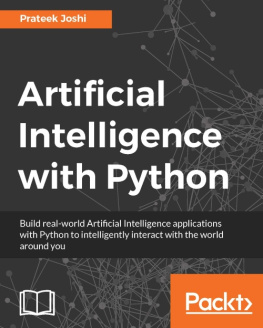ARTIFICIAL INTELLIGENCE BUSINESS APPLICATIONS
How to Learn Applied Artificial Intelligence and Use
Data Science for Business. Includes Data Analytics,
Machine Learning for Business and Python
WILLIAM J. FORD
Copyright 2020. William J. Ford
All Rights Reserved.
This document is geared towards providing exact and reliable information about the topic and issue covered. The publication is sold with the idea that the publisher is not required to render accounting, officially permitted or otherwise qualified services. If advice is necessary, legal or professional, a practiced individual in the profession should be ordered.
- From a Declaration of Principles which was accepted and approved equally by a Committee of the American Bar Association and a Committee of Publishers and Associations.
In no way is it legal to reproduce, duplicate, or transmit any part of this document in either electronic means or printed format. Recording of this publication is strictly prohibited, and any storage of this document is not allowed unless with written permission from the publisher. All rights reserved.
The information provided herein is stated to be truthful and consistent, in that any liability, in terms of inattention or otherwise, by any usage or abuse of any policies, processes, or directions contained within is the sole and utter responsibility of the recipient reader. Under no circumstances will any legal obligation or blame be held against the publisher for any reparation, damages, or monetary loss due to the information herein, either directly or indirectly.
Respective authors own all copyrights not held by the publisher.
The information herein is offered for informational purposes solely and is universal as so. The presentation of the information is without a contract or any guarantee assurance.
The trademarks that are used are without any consent, and the publication of the logo is without permission or backing by the trademark owner. All trademarks and brands within this book are for clarifying purposes only and are owned by the owners themselves, not affiliated with this document.
TABLE OF CONTENTS
How Artificial Intelligence Will Change The Nature
Of Business In The Future
12 Of The Most Popular Artificial Intelligence Tools
In The Market
INTRODUCTION
I s your marketing technique taking advantage of the significant strides in technological innovation to reach out to your clients when and where it matters? In the race of modern business, failure to concentrate on developments in emerging technologies, like artificial intelligence, can result in a level of customer engagement far behind your tech-enhanced competitors.
For years, the standard model for targeted ads has been to identify markers of behavioral similarity (e.g., subscription to a publication in a specific subject matter) and to create content that appeals your selected groups of customers.
But in today's hyper-personalized environment, this "good for the chicken, good for the gander" strategy no longer cuts. Yet the human effort required to design genuinely customized, large-scale advertising and marketing have made it almost impossible to target customers with accuracy.
Thanks to artificial intelligence, though, we now have the resources to do that, and to make it easier than ever to locate, link, and turn prospects.
Just as essential, artificial intelligence enables the streamlining of marketing systems, the lifting of prohibitive costs that once hampered attempts to improve 1:1 interactive and individualized content.
In this book, we will discuss the different ways in which companies use artificial intelligence to enhance both the quality and efficacy of their 1:1 marketing campaigns, taking a look at how AI can change the way businesses communicate with their users in the years to come.
Artificial Intelligence and why it's important for the future of your marketing.
AI is an indispensable tool that businesses can use to get important insights and cutting-edge approaches from data sources.
There's been a lot of hype about artificial intelligence (AI) recently, but few people actually know what it is. Artificial intelligence is a branch of computer science that focuses on developing software capable of learning and enhancing their performance over time. While computers are very good at quickly collecting vast volumes of data, it has historically been reserved just for the human mind to know what to do with that knowledge and information, and how to use them to achieve a specific goal.
In the 1950s, computer scientists started searching for ways to build applications that could solve problems and imitate the way people think. Recent AI systems have helped with "fast" tasks such as street mapping and, by 2003, the infrastructure that would serve as basis for cyber-helpers such as Alexa or Siri has been put in place.
Nowadays, AI's algorithms are able to constantly learn and respond to different "inputs ", whether they are human speech, x-ray pictures, or other data types. And AI's ability to change every aspect of its industry, from development to customer service, is immense.
Companies are now using AI to monitor consumer behavior, forecast population compliance, foresee sales, and provide top-class customer support. In reality, technology is now responsible for driving the day-to-day applications that we know and enjoy, like Siri, Cortana, PayPal, Google Maps, and more, across a number of AI outposts such as machine learning, deep learning, and natural language processing (NLP).
This, of course, begs the question: if AI technology is so strong, how can I use it to advance the marketing strategy of my company?
How businesses use AI to boost their marketing ROI
With the advent of AI, businesses have gained not only the potential to communicate individually with customers but also to turn the data they left behind into a blueprint for how to best represent them in the future.
As AI algorithms continue to grow, and sophisticated computing power becomes more commercially available, businesses are slowly increasing the role of artificial intelligence in their marketing strategies. Sometimes used to decode signals hidden within mountains of evidence, artificial intelligence also offers a crucial strategic advantage by offering deep statistical capabilities to accurately forecast consumer behavior.
Using predictive analytics to forecast buying trends.
Predictive analytics uses large volumes of data to forecast possible results. Companies like Target have shone the focus on predictive analytics to masterfully forecast the buying habits of customers. In 2012, the company made headlines after they were able to accurately forecast a teenager's pregnancy taking in consideration her shopping patterns before she had known that she was (unexpectedly) expecting it.
This event shows both the accuracy of the algorithms used by marketing firms and the continuing need for human control during the use of these emerging technologies.
Using deep learning to identify complex objects.
Deep learning allows a machine to "read" images, text, speech, and other data structures to save useful information. No discussion on the use of deep learning is complete without discussing how the social networking giant Facebook uses a powerful object-recognition system that uses user-submitted images from Instagram.
Although the company claims that the intelligence collected is not being used to interpret consumer behavior further, the new open-source initiative opens the door to the idea that other businesses will still exploit this analytical technology.




